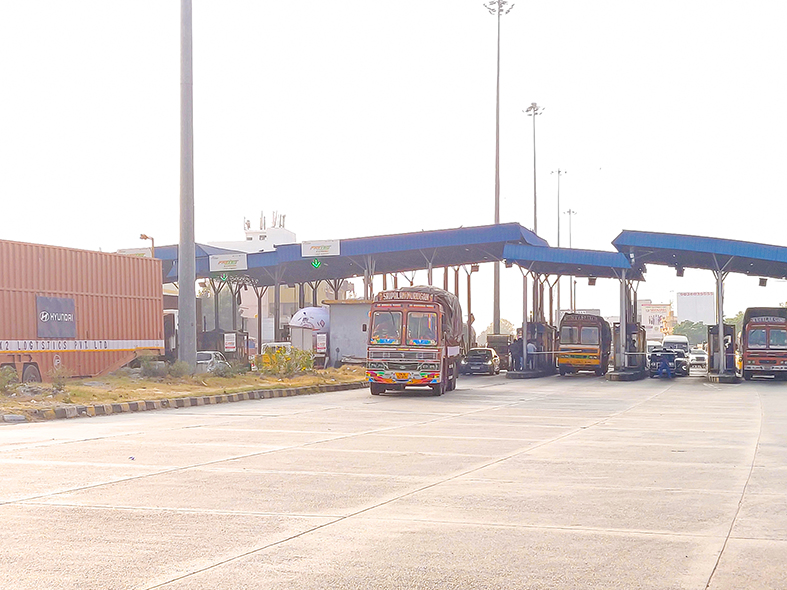There is an urgent need to relook at the way road-building and toll collection rules are governed in our country.
Happy 2021! As we enter a new year, the world is increasingly getting polarized between those who want economic development and profits at any cost and those who fundamentally want a clean world that is both equitable and sustainable to present and future generations. The coronavirus pandemic has clearly exposed the glaring levels of inequality and environmental degradation that our choices of growth and development have led to. Diverse social factors and changing socio-political contexts are making those choices even more complex and impactful. There is a constant need for dialogue and deliberation on those sets of choices over and over again in different contexts, as no choices or developmental decisions are universally applicable. Strictly speaking, the only way to ensure that the most appropriate decisions are made is to open the choices to public scrutiny. This rationale rightly applies to road projects more than anything.

In India, public scrutiny is never given an institutional form with respect to infrastructural and developmental projects unlike Western nations. Decisions are always taken by administrative and its proxy groups (corporates, construction lobbies) that hardly take cognizance of public opinion. In today’s craze for rapid infrastructure, it is generally assumed that roads bring prosperity at any cost. There is a fair bit of truth in the assumption, but road building is not a magic wand to economic prosperity, and the cost economics and management with complete lack of transparency and accountability to the public is not justifiable.
Take for instance the National Infrastructure Pipeline (NIP) under which the Union government is planning to invest INR 111 lakh crores on infra projects by 2024-25, of which INR 25 lakh crore – about one-fourth – will go to the road sector. This may seem like good news for the transport industry, but where is the money going to come from, and who is going to repay? Government is looking forward to borrow heavily to meet these projects, and even the on-going severe economic recession and pressures on social spending could not prevent it from excessive spending on roads. NHAI is facing a ‘debt trap’ as its borrowings have grown a whooping 1800 percent since 2014-15, whose debt is expected to grow even further to INR 3.69 crores (pre-covid projections) by the end of 2021-22.
Further, the sheer opacity in public-private partnerships and the manner in which contracts are awarded to collect tolls is scandalous. Road projects are the ‘holy’ cash cows, as unlike other infra projects, roads can be immediately monetized from users to gain large profits, with no accountability whatsoever. Much of the public rage against ‘unreasonable’ toll charges based on exaggerated estimates stems from the “babu-neta-contractor” nexus – a term that has gained huge notoriety in common parlance. Contracts are shrouded in secrecy and the details are hardly divulged in public domain, while various prerequisites laid down by NHAI such as minimum distance between toll booths, road maintenance and provision of basic amenities to users are often flouted. Governments have always stonewalled demands for independent investigations on corruption in road sector, and the contractors are never held responsible for failing to meet the requisites.
Instead, the MoRTH focus in recent years is only on stringent compliance of users to toll collection. To meet the repayment targets, it is on a killing spree to levy toll on all possible roads – even unfinished ones, flouting existing norms and various court rulings. Fares are regularly increased, exemptions to eligible users are restricted, and electronic toll collection systems like mandatory FASTag are imposed all users – not necessarily to reduce idle time at toll plazas for transporters, but more importantly to boost cashless transactions that are relatively effective than cash payments from collection point of view – much to the disadvantage of the common users, thanks to unwarranted retapes including Aadhaar for instance (in contra to Supreme Court’s ruling) and other tethering issues in acquiring FASTags. The transport industry is largely in favour of toll collection, as they are quite convinced that anti-toll tax campaign is a lost cause, but we have to keep in mind that massive toll costs will push the logistics cost higher for trucking, thereby losing its competitive advantage to other means – railways in particular.
It’s high time we relook in entirety the manner in which the road projects are conceived and managed, by enabling greater accountability and transparency with regard to all stakeholders involved, bureaucratic processes, ways and means, and regulations to toll collection, so that the transport industry and public at large are able to scrutinize the developments.
I’d love to know what you think, email you views to dhiyanesh@motorindiaonline.in